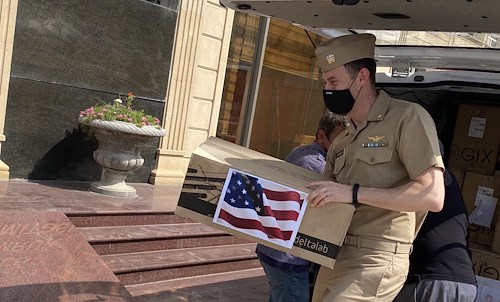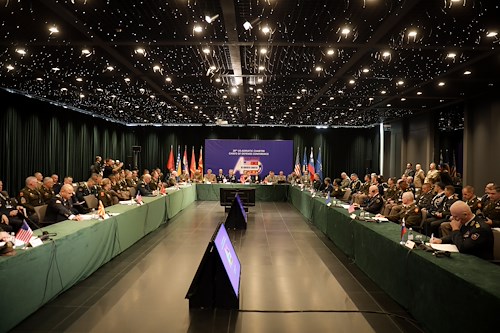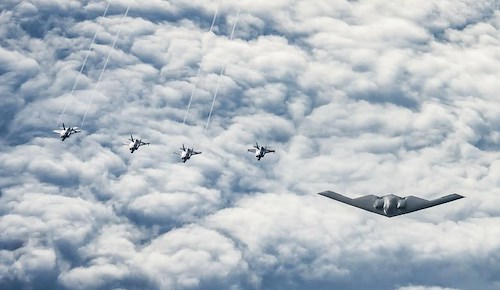Gallery contains 1 image
×
Photo 1 of 1
Vital Support Initiatives
Photo by: U.S. European Command Public Affairs
More than 30 military civil affairs professionals from across Europe came together virtually to plan a wide range of military activities to better understand, engage and support civil-military operations in Europe. Hosted by U.S. European Command’s (USEUCOM) theater civil affairs planning team, the annual, week-long event, which concluded Sept. 11, included a full spectrum of civil affairs practitioners from all military levels serving across the European continent – from the Supreme Headquarters Allied Power Europe, Joint Forces Command- Brunssum and Joint Forces Command-Naples to each of the U.S. service components under USEUCOM’s umbrella.
“Bringing together strategic and policy-focused with tactical, rubber-meets-the-road civil affairs professionals is an incredible opportunity to advance our theater efforts at the,” said U.S. Army Col. Kyle Simpson, chief of USEUCOM’s civil military operations division. “In this complex security environment with so many state actors competing in veritably every domain, the soft-power prowess of USEUCOM has never been more important than it is today."
Assisting NATO Allies and partners in the fight against the COVID-19 virus is one example where U.S. military civil affairs have been front and center, delivering critically-needed personal protective equipment and other medical aid to help protect Europeans – from frontline healthcare and emergency response professionals to students and elderly citizens living in assisted care facilities. Funded through the U.S. Defense Department’s Overseas Humanitarian, Disaster and Civic Aid (OHDACA) program, USEUCOM has completed 92 COVID-19 related projects for 23 NATO Allied and partner nations.
Smaller, but no less impactful civil affairs projects included constructing hospitals and clinics as well as schools like the one inaugurated last week in Sisak, Croatia. That state-of-the-art kindergarten, which serves some 85 pre-school students, was a partnership project between the United States and Croatia. The building construction was initiated with the U.S. military civil affairs initiatives financing $710,000, while the Croatian town funded the school’s playground and equipment. In the formal ceremony Sept. 10, the school’s headmistress, Sandra Kramaric, said in thanking the Americans, "We had been waiting for a new kindergarten for 20 years; today we are proud of the new building."
“Each military civil affairs project that we scope and pursue can have a powerful, lasting impact on local communities across Europe,” Simpson added. “As the professionals who help turn those concepts into a reality for tiny villages and large metropolitan cities alike across this expansive theater, there is no prouder moment than to see the goodness and generosity of America become a cornerstone for these communities.”
As part of the USEUCOM planning, participants reviewed activities and force structure against the backdrop of USEUCOM command objectives, to make adjustments to optimize support to the command in competition, deterrence and preparations for future operations. The group’s efforts also studied future civil affairs requirements to ensure activities are aligned and support USEUCOM Commander Gen. Tod D. Wolters’ objectives across Europe, and advance NATO’s convergence of U.S. Civil Affairs with NATO’s Civil Military Cooperation.
To keep the participants safe and healthy during the ongoing COVID-19 global pandemic, the symposium leveraged technology to allow attendees from across Europe to participate virtually.
-30-








